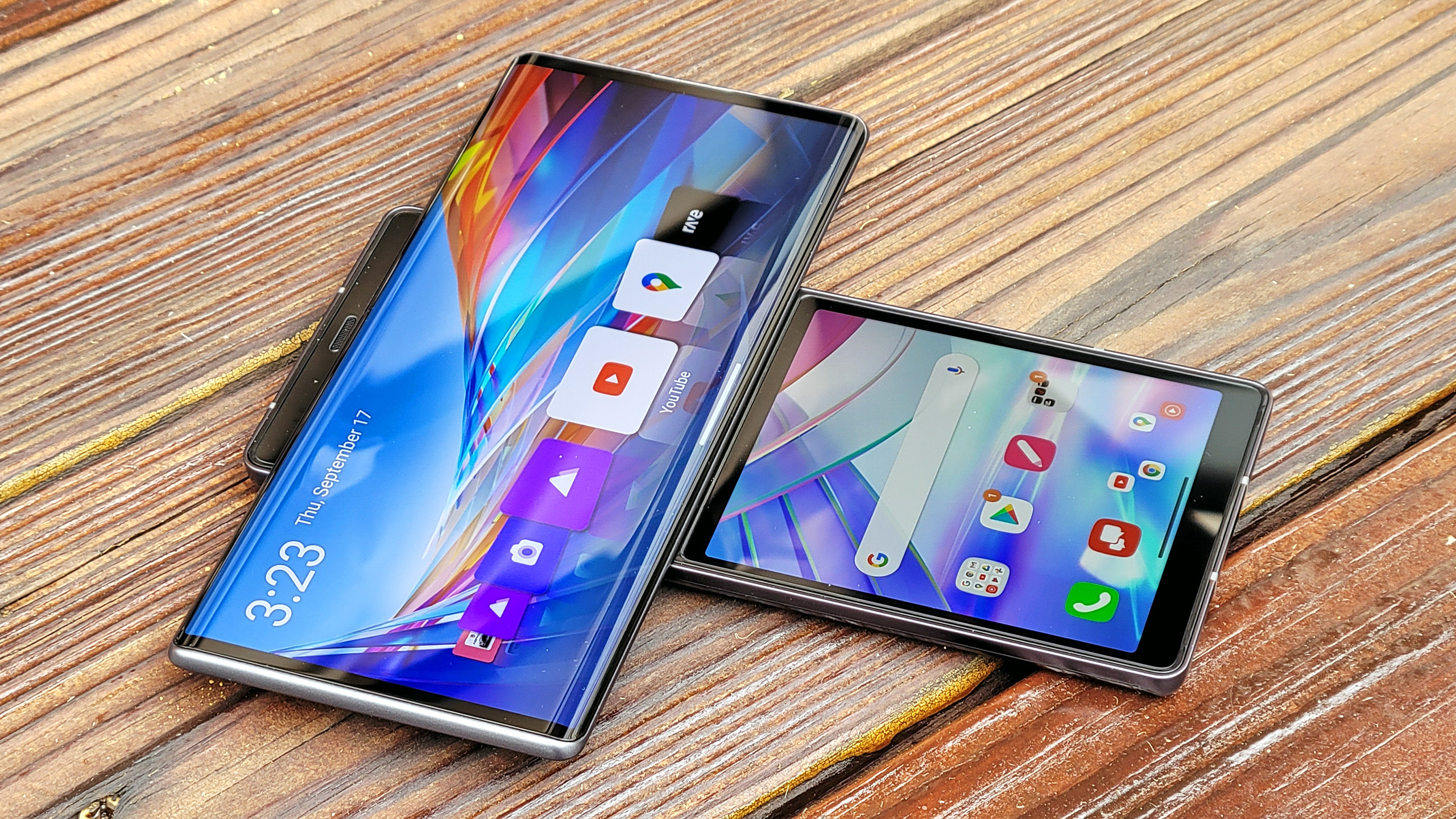LG phones are reportedly dead — here’s why
It looks like the end of the LG Rollable and other LG phones

It sounds like the end is at hand for LG's smartphone business.
Since January, rumors have suggested LG might give up on its phone business after years of losses. We may have reached the point where rumor becomes reality, as a report out of South Korea claims the company will announce that it's shuttering its phone business this coming Monday (April 5).
- The best Android phones still out there
- Forget the LG Rollable — here are the Galaxy Z Fold 3 rumors
- Plus: LG Rollable OLED TV is priced so high, you'll think it's a joke
The report from the Korea Times cites industry sources that claim "LG has considered various options such as a sale, split sales or pulling out of the smartphone business, but decided recently to pull out of the business." LG declined comment on the Korea Times report.
Still, the writing has been on the wall for LG's phones for some time. Last month, the phone maker reported suspended development on the successor the LG V60. Rumors have also swirled around the LG Rollable, a phone with an expanding screen that made a splash at CES earlier this year. While LG said at the time that the rollable phone was coming this year, subsequent reports suggested that the LG Rollable had been cancelled, too.
LG phones biggest problem: No ecosystem
LG had the third largest market share for phone makers in the US at the end of 2020, but it's a distant third behind Apple and Samsung. Globally, LG has long since been surpassed in market share by Chinese rivals such as Huawei and Oppo.
"The smartphone industry is littered with big brands that stumbled and could not profitably stay in the game," said Avi Greengart, president and lead analyst at Techsponential. "Most of the direct profits from smartphone sales have gone to Apple and Samsung, and LG was never able to build a software or services ecosystem around its phones to justify selling phones as a loss leader."
Unlike other phone makes who've found a niche — Motorola has recently thrived with its low-priced Moto G Series while Google's Pixel phones are held in high regard for their photo features — LG has struggled to stand out from the smartphone crowd.
Sign up to get the BEST of Tom's Guide direct to your inbox.
Get instant access to breaking news, the hottest reviews, great deals and helpful tips.
"The high end of the market is mostly in the hands of Samsung and Apple, and following them is a long line of Android smartphone vendors offering mid/high-range phones at mass-market prices or absorbing the entry-level market with compelling mid-range devices," said Ramon Llamas with IDC. "And even though LG has had a strong head start in the market, it nonetheless struggled with companies who were willing to undercut on price or with companies who drew customers deeper and deeper into their respective ecosystems."
Risks that didn’t pay off
LG has attempted to make a splash with new designs in recent years. In addition to developing the LG Rollable, LG also introduced the LG Wing, a phone with a secondary display that swiveled out from behind the main screen. Last year's LG Velvet was also a welcome attempt to bring a stylized design to a more affordable midrange phone.
In 2016, LG tried to differentiate itself with the LG G5, which worked with accessories called Friends. Like other modular phones, though, the device never took off.
"If LG shuts down its phone business, the biggest competitive impact will be in the U.S. prepaid market, where LG has been trying to keep volume sales up, and South Korea, where LG owns wireless carrier U Plus," Greengart said. "LG’s upcoming rollable phone would also be missed, although LG is not the only company working on new smartphone designs for flexible displays."
As of Monday, though, it sounds like those devices as well as future LG phones will be no more. What happens after that could be interesting, IDC's Llamas said, as "LG’s history and recent R&D can offer much to another company."
We'll be keeping an eye on Korea for what seems like the final word on LG's phone efforts.
Philip Michaels is a Managing Editor at Tom's Guide. He's been covering personal technology since 1999 and was in the building when Steve Jobs showed off the iPhone for the first time. He's been evaluating smartphones since that first iPhone debuted in 2007, and he's been following phone carriers and smartphone plans since 2015. He has strong opinions about Apple, the Oakland Athletics, old movies and proper butchery techniques. Follow him at @PhilipMichaels.

